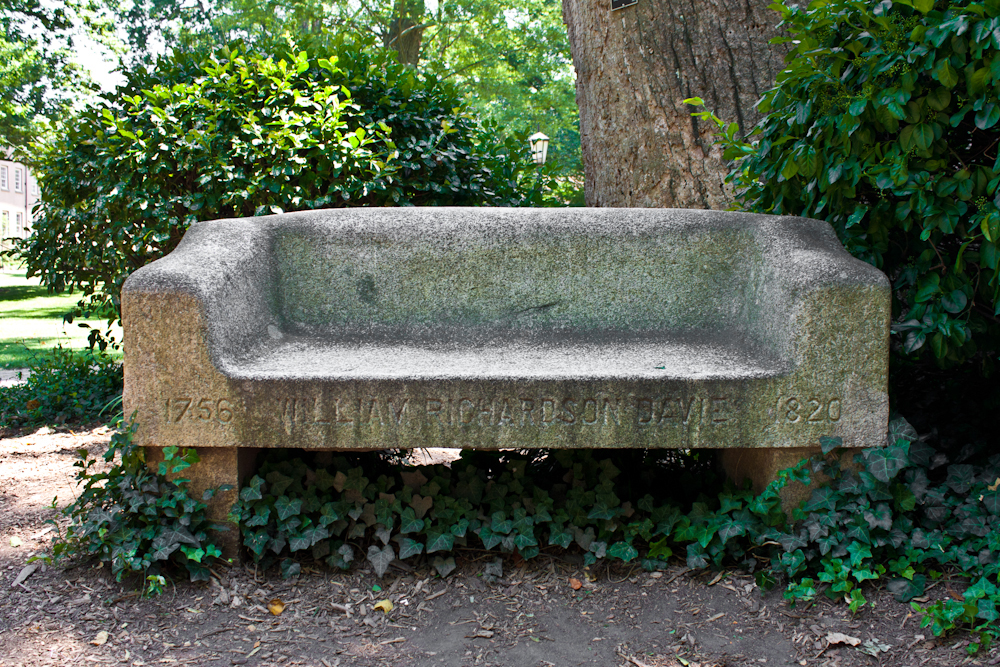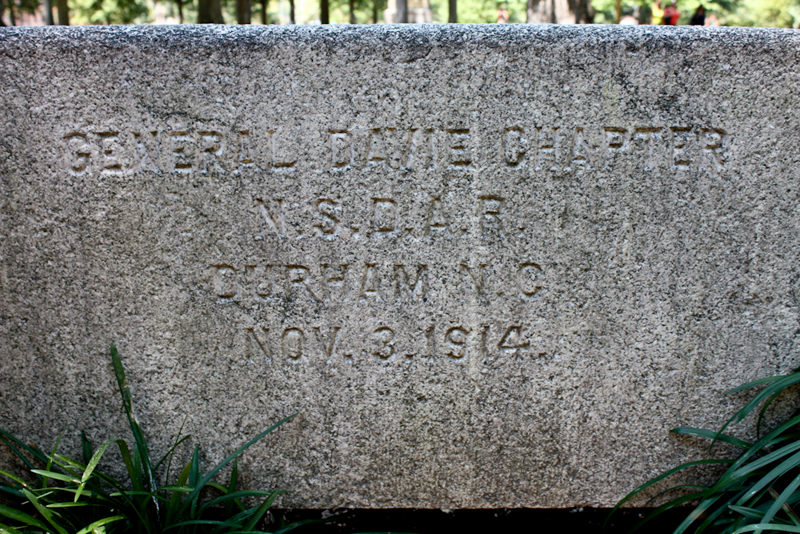Who was General Davie?

General William Richardson Davie was born in England in 1756 and came to America as a young child in 1763. He was well educated, attending Queen’s Museum, later Liberty Hall, in Charlotte, North Carolina, and then the College of New Jersey, later known as Princeton University. William Davie served several times during the American Revolutionary War. He served in the North Carolina militia as a lieutenant in the Rowan County Regiment, a captain in the North Carolina Light Dragoons Regiment, and a major in the 2nd Mecklenburg County Regiment. He later served in the Continental Army and as Commissary General for North Carolina.
During his recovery from a war wound received in 1779, he completed his law study and obtained his license to practice law. He was appointed to the North Carolina delegation to the Constitutional Convention in 1787 and helped secure the Great Compromise. He was appointed by President John Adams to brigadier general in 1798.
William Davie was instrumental in the formation of the University of North Carolina, proposing a bill to the North Carolina House of Representatives, then known as the House of Commons, that established the University of North Carolina. Known as the “Father of the University,” he was awarded a Doctor of Laws degree in 1810 by the board of trustees. He was closely involved in selecting the first instructors, curriculum, and location for the country’s first public university.
Part of the inscription on his tombstone states that William Davie was “A true lover of his Country, Always preferring the People’s good to the People’s favour … A Great Man in an age of Great Men.”
Our chapter is honored to be named for this beloved great man.

In 1914, the chapter placed a stone bench under the Davie Poplar at
the University of North Carolina at Chapel Hill in memory of the life of General Davie.

